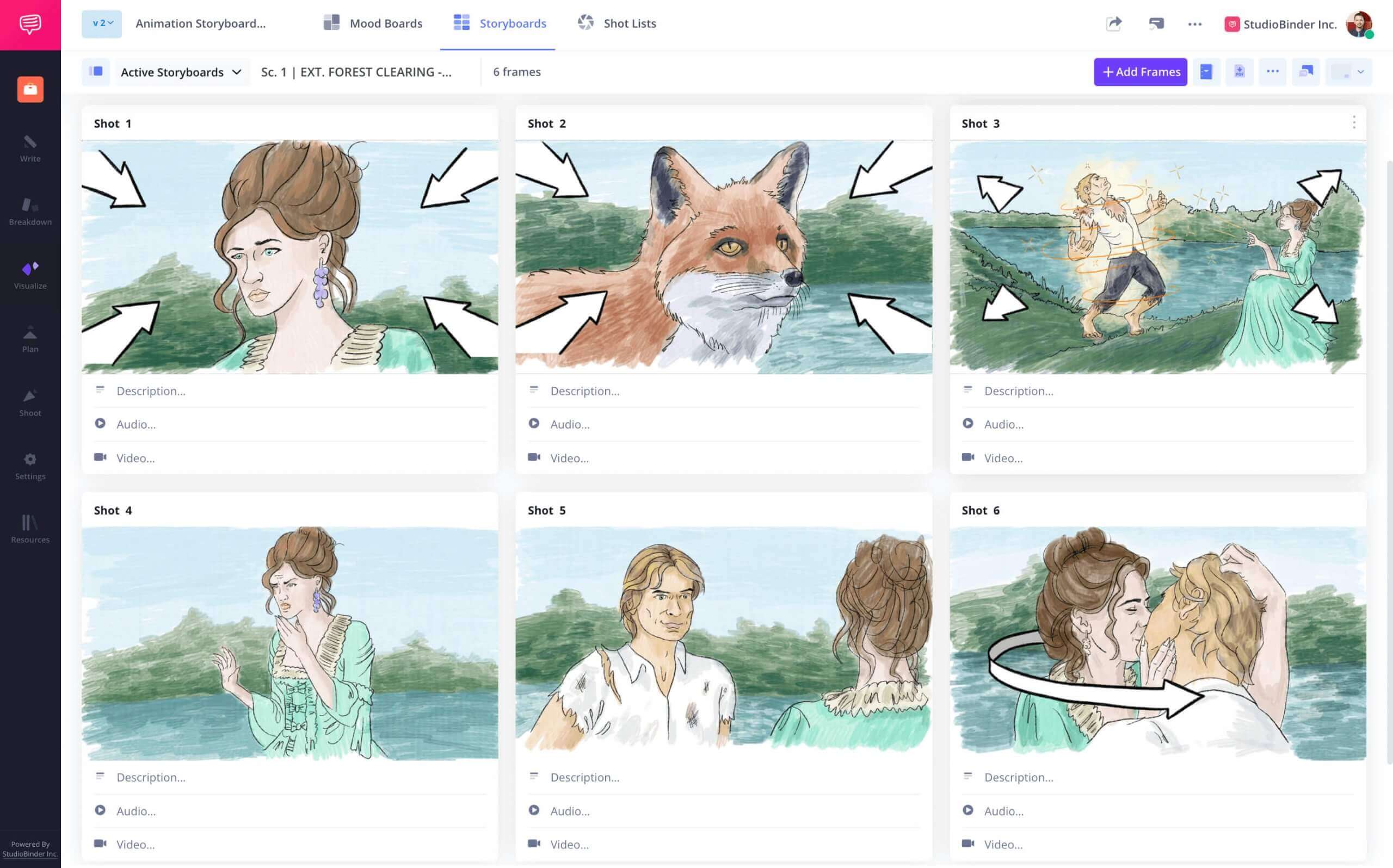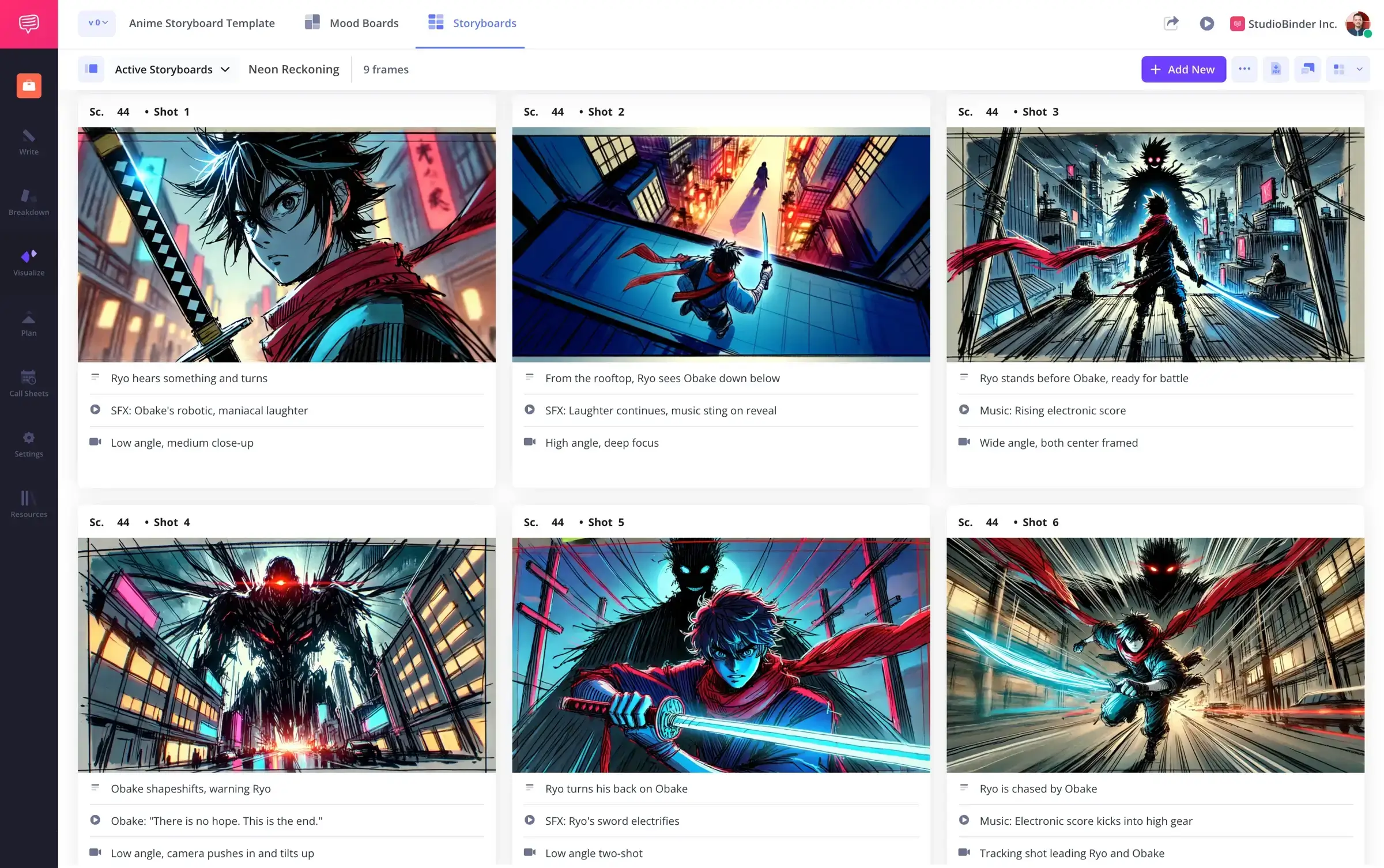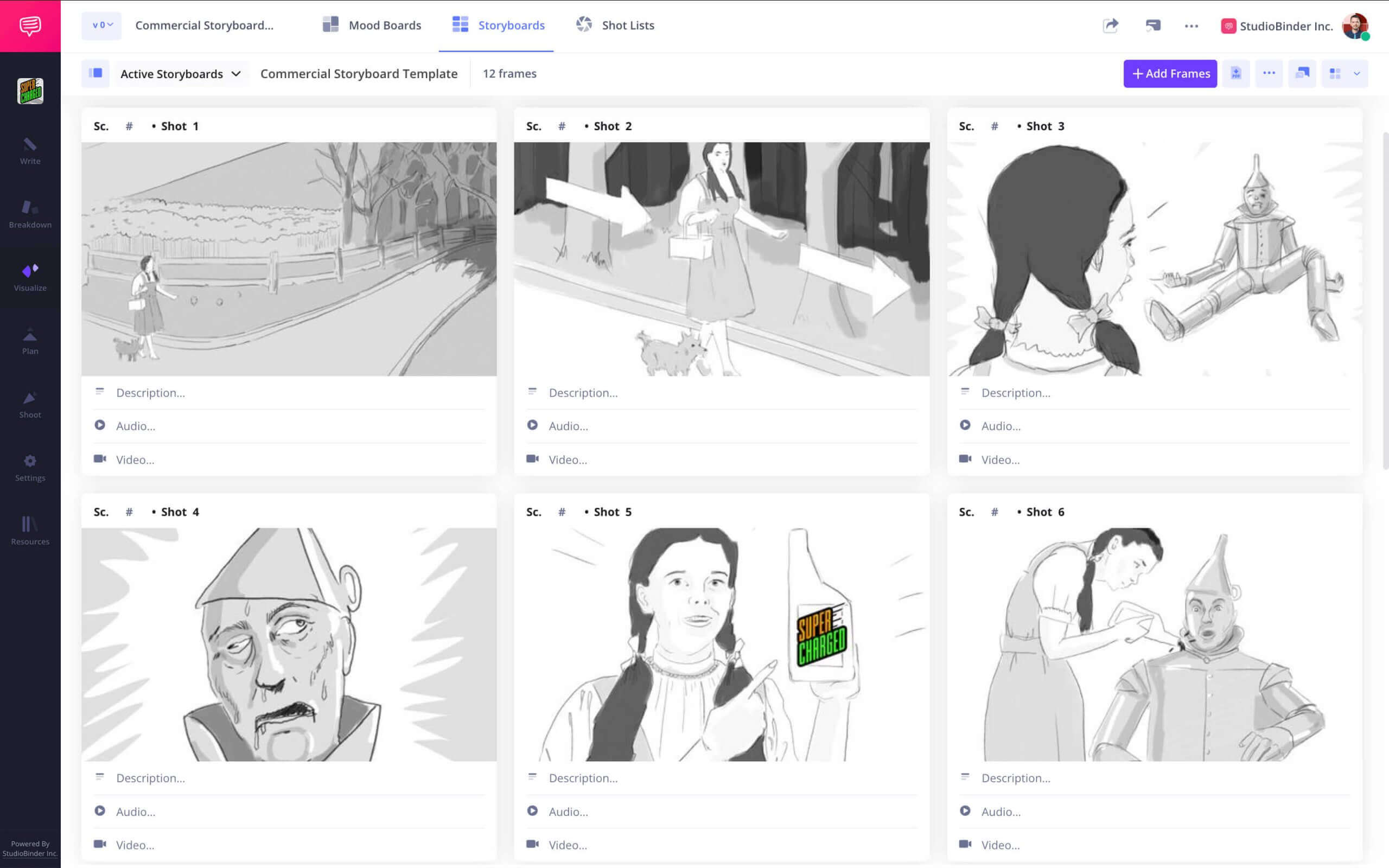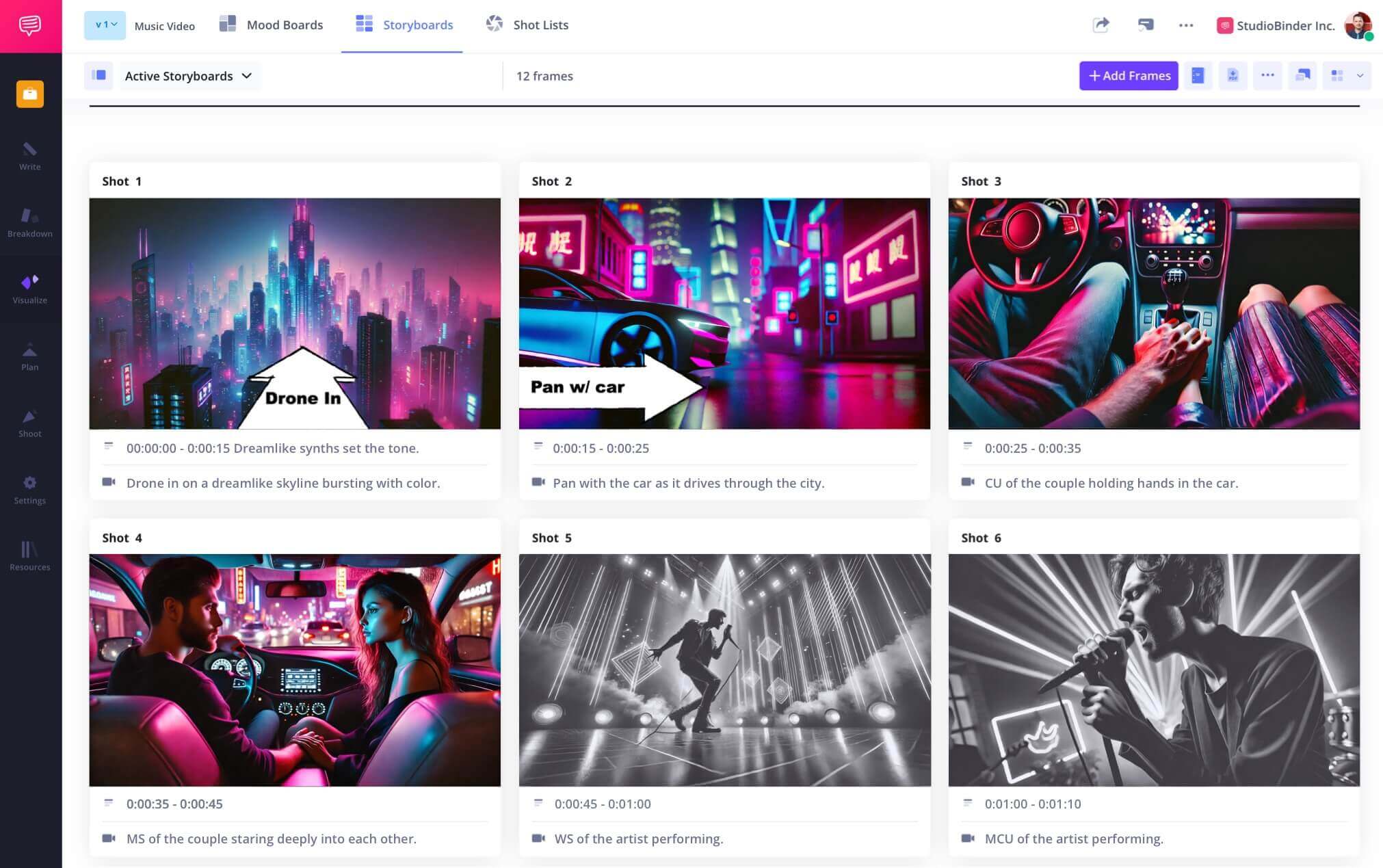Best Storyboard Software
Plan your project visually
Looking for the best storyboard software? StudioBinder is a complete production planning tool used by professionals across film, TV, and web content creation.
Storyboard Builder
Pro tools for planning and visualization
StudioBinder’s storyboarding software can seamlessly go from a script to organized visuals that communicate your creative intent.
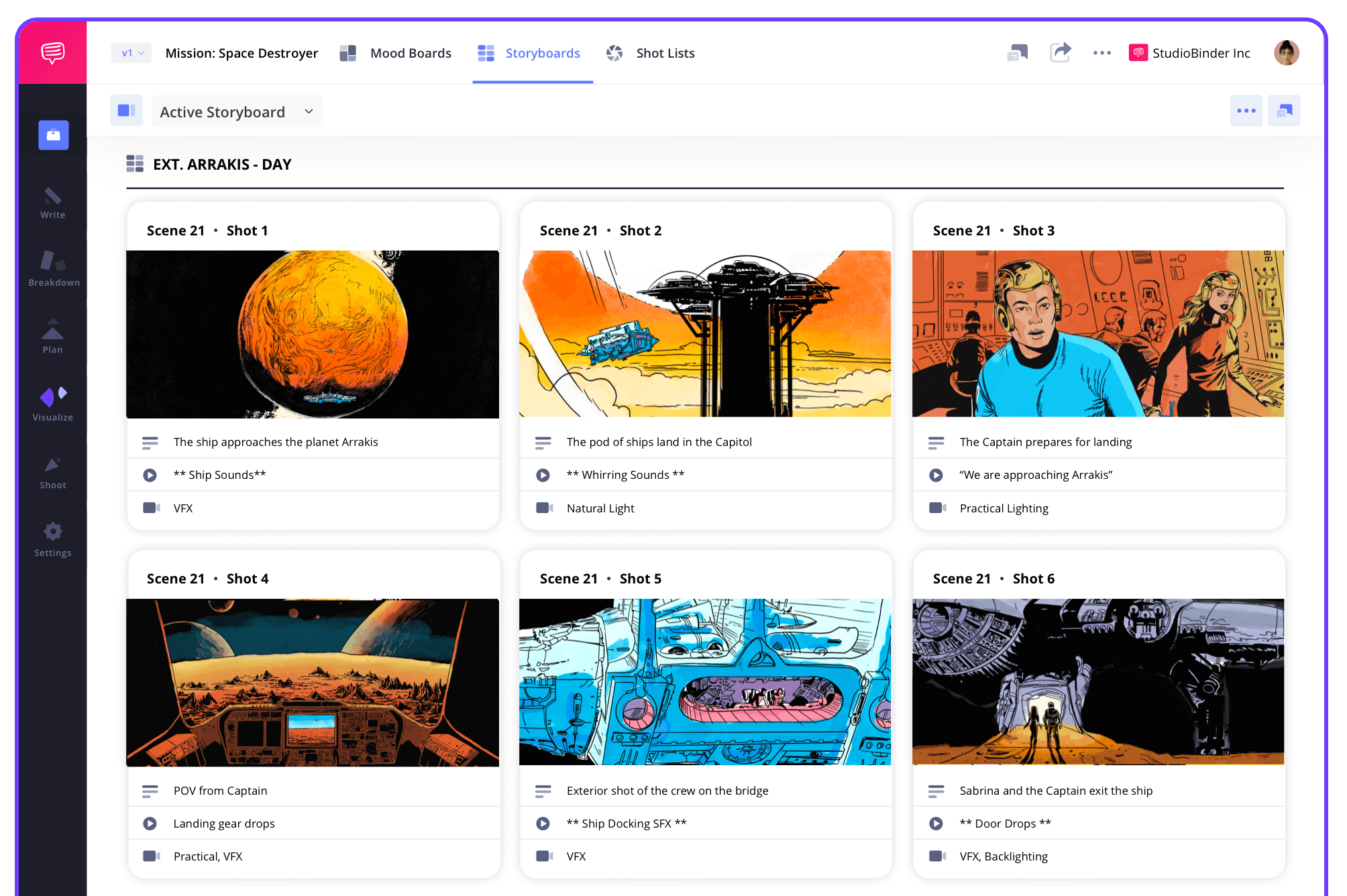
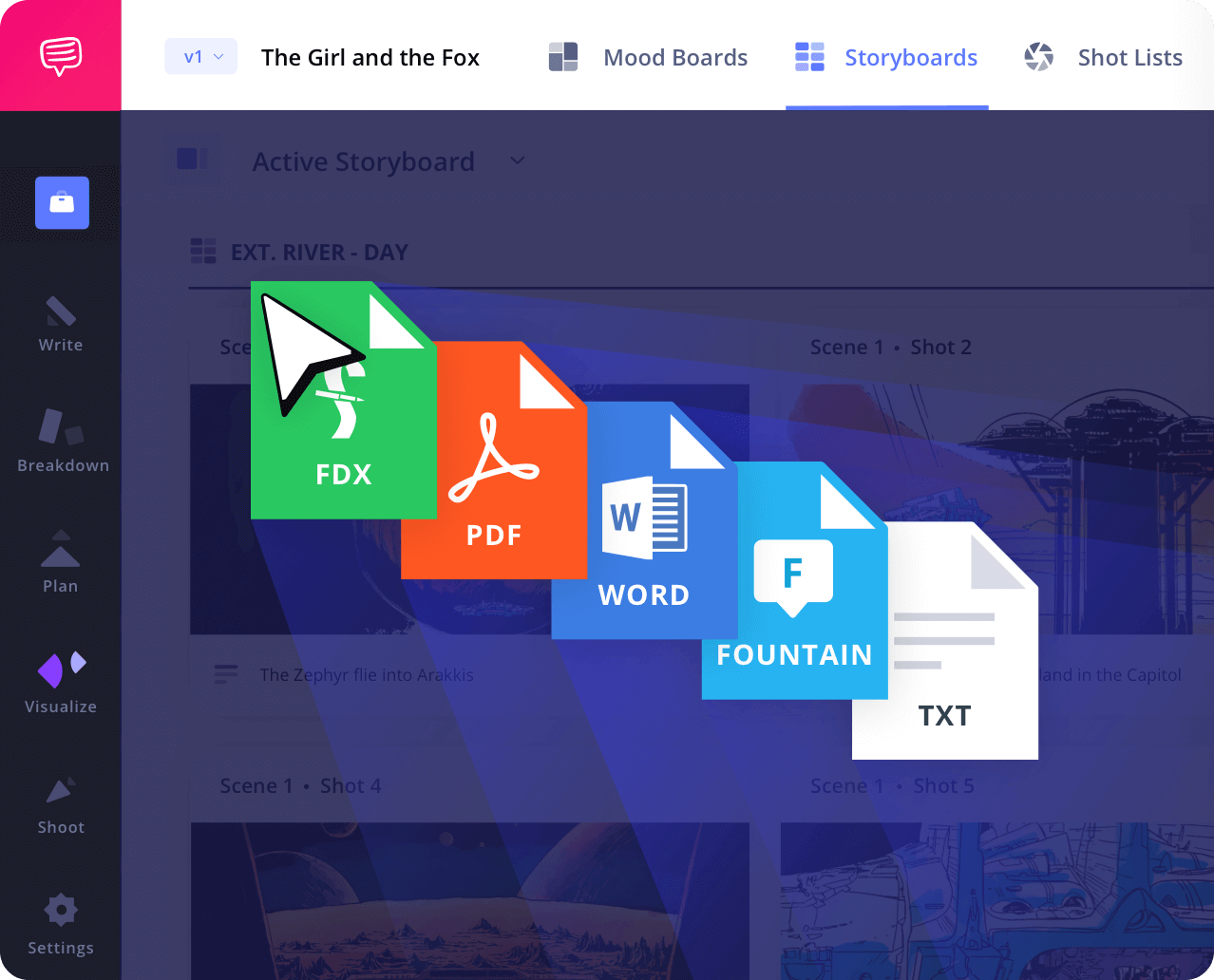
Script to Storyboard
Generate storyboards from scripts
Write or import your script and StudioBinder will sync each scene, allowing you to create storyboards with full control. It’s a feature that puts us among the best software for storyboarding today.
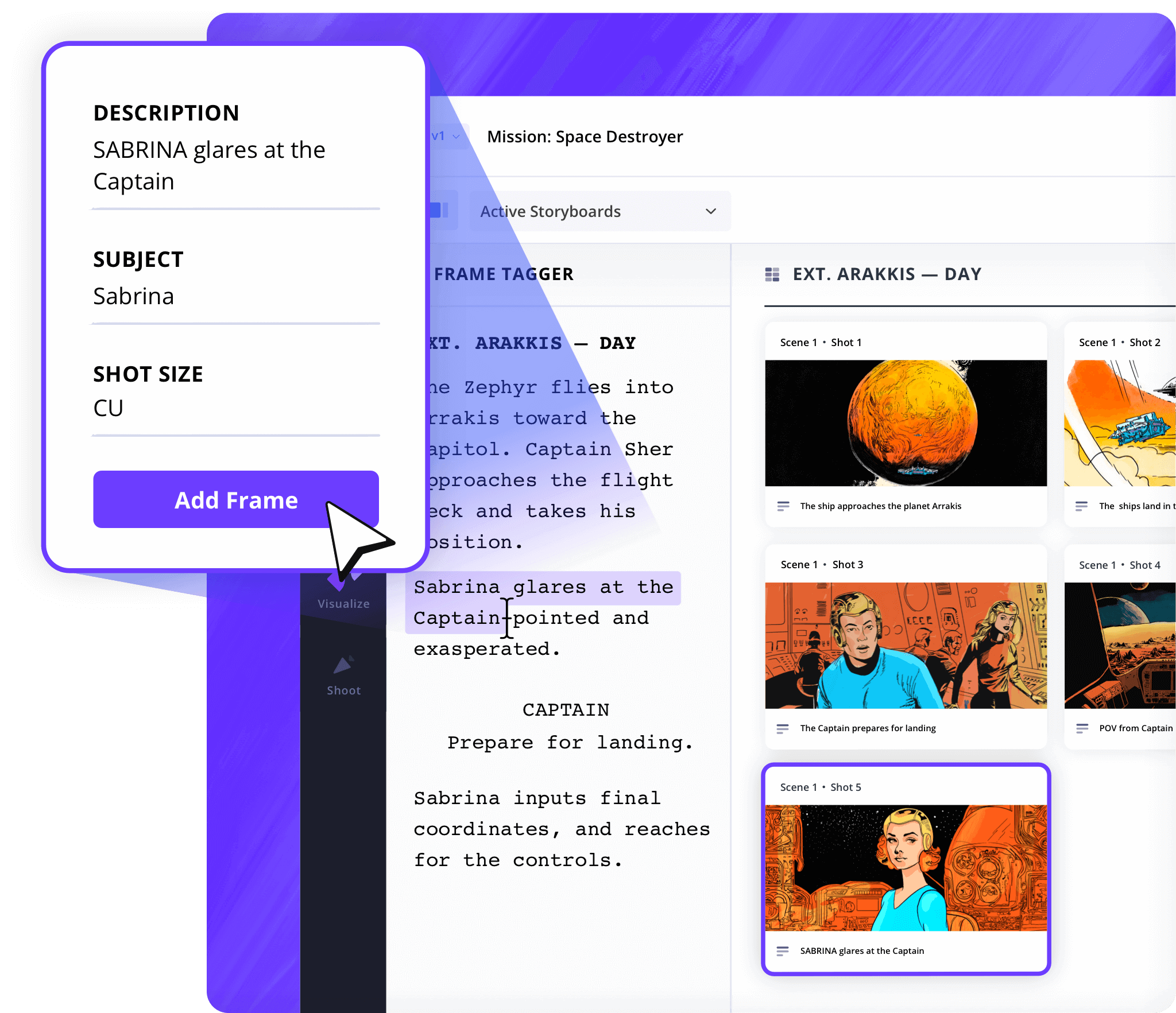
Shot Tagger
Tag the shots in your script
Highlight lines in your script and instantly convert them into storyboard panels. This time-saving option is a favorite among users of the best storyboarding software for film and video.

Shot Specs
Customize layouts for any format
Whether you’re creating a movie storyboard, a music video layout, or an AV breakdown, you can set the shot specs to fit your vision.
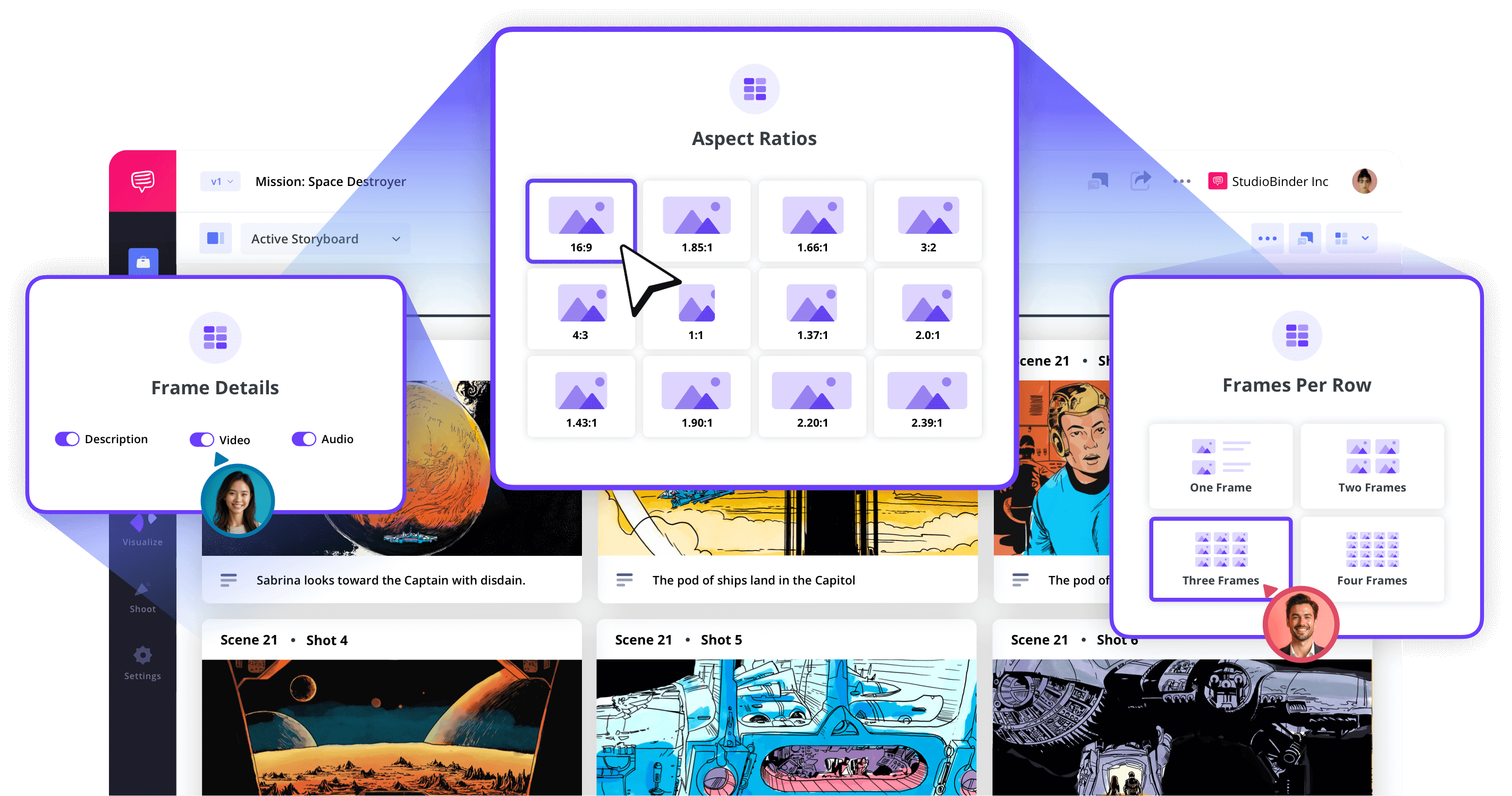
Image Editor
Annotate and enhance your visuals
Scan your sketches or upload your assets. Then enhance them using editing tools, filters, and text. Users prefer StudioBinder for its built-in editor that competes with any free storyboard software.
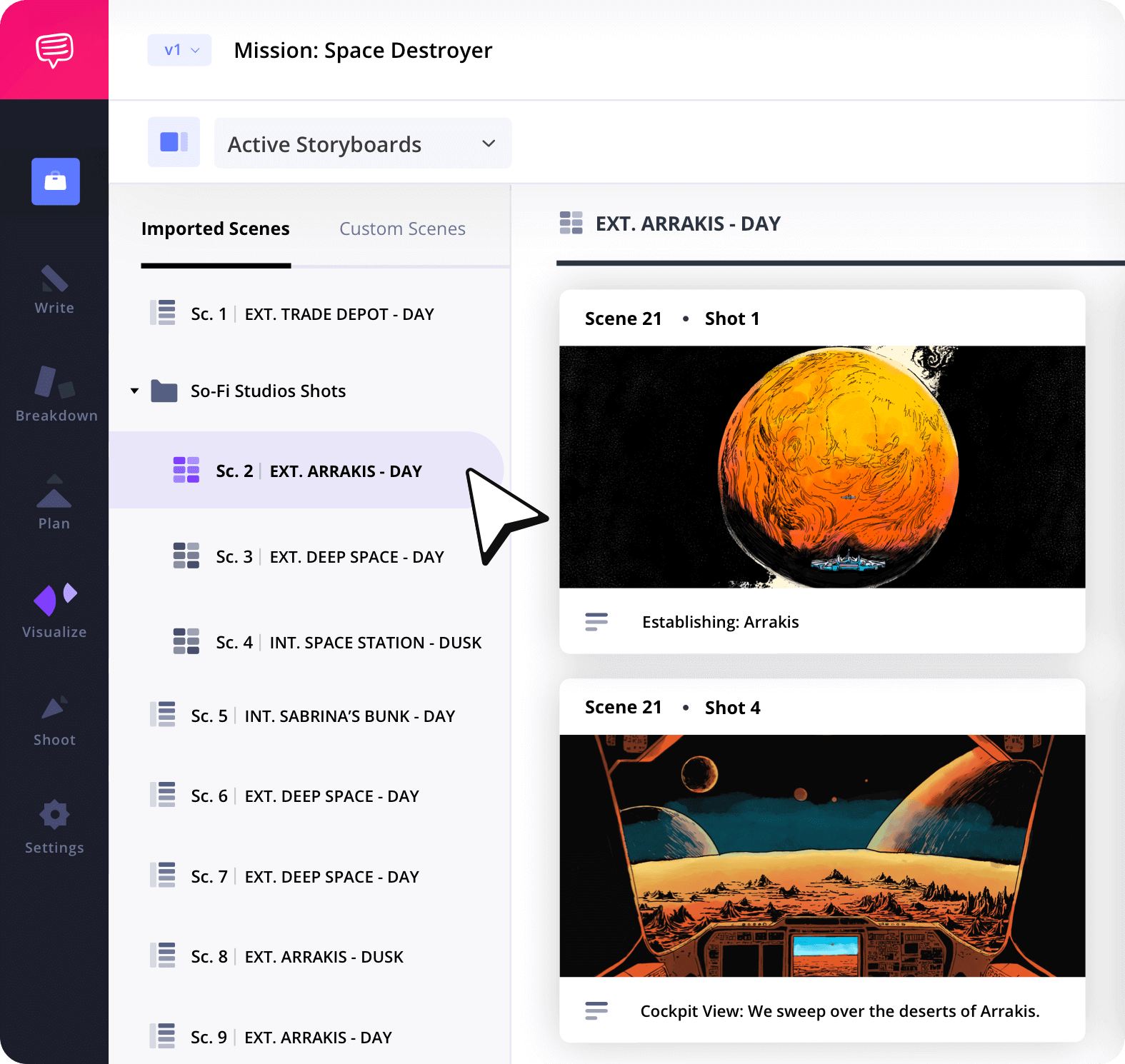
Storyboard Groups
Keep storyboards organized
Create scene groups by shoot day, location, or department. This feature is essential for teams that demand the best storyboarding software to stay organized during production.
Collaborate
Storyboard with a team
Work with producers, artists, or clients. Comment on storyboard panels, track updates, and keep your project moving smoothly. This is essential for professional storyboard software.
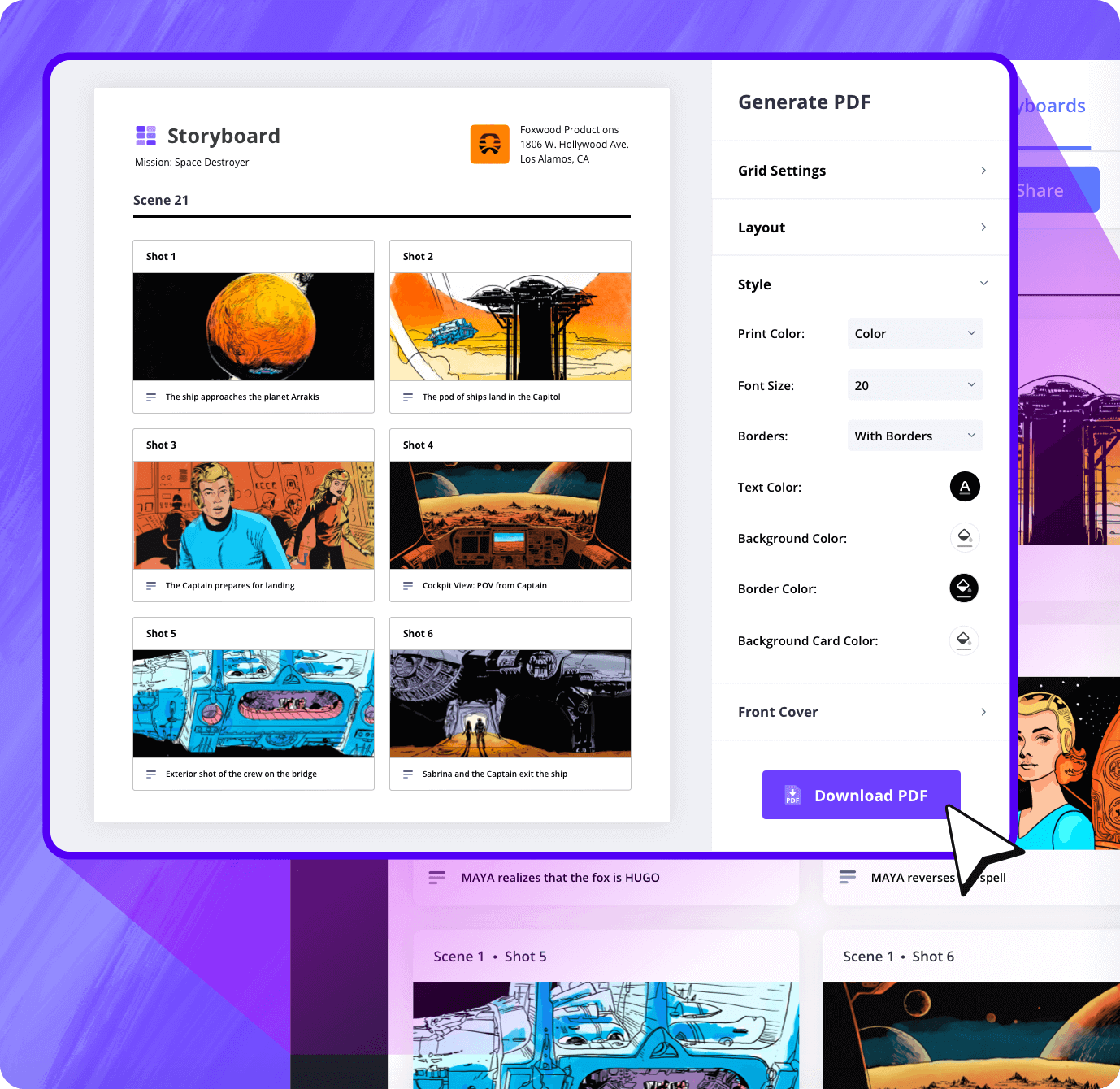
Customization
Export fully polished PDFs
Need to present your vision? Export stunning PDFs with custom covers, watermarks, and layout options. StudioBinder is the best storyboard software for polished client presentations.
Sharing
Share live storyboards instantly
No need for endless back-and-forth emails. Just send a link. Team members can view or comment instantly, making StudioBinder a top choice among programs for storyboarding that prioritize ease of access.
Explore Features
More storyboard features
Aspect Ratios
Choose an aspect ratio that best suits your project.
Column Layouts
Adjust how many columns your storyboard will have.
Image Library
Reuse storyboard panels from previous projects.
Shot Numbering
Choose between digits, letters, or a custom shot numbering.
Storyboard Archive
Archive old storyboards to keep an accessible history.
Color-Code Shots
Label or call out specialty shots with colors.

What are the 8 steps in storyboarding?
Open StudioBinder on your browser.
Click on the Storyboards tab on the project homepage.
Choose to either import a script or create a storyboard manually.
Name the storyboard, set the aspect ratio, and select the number of frames.
Add an image to each frame from the Media Library or upload new images.
Edit your images with a suite of tools, including filters, text, and arrows.
Enter details, including the scene number, description, and notes.
Create a custom PDF, send a view-only link, or invite collaborators for feedback.
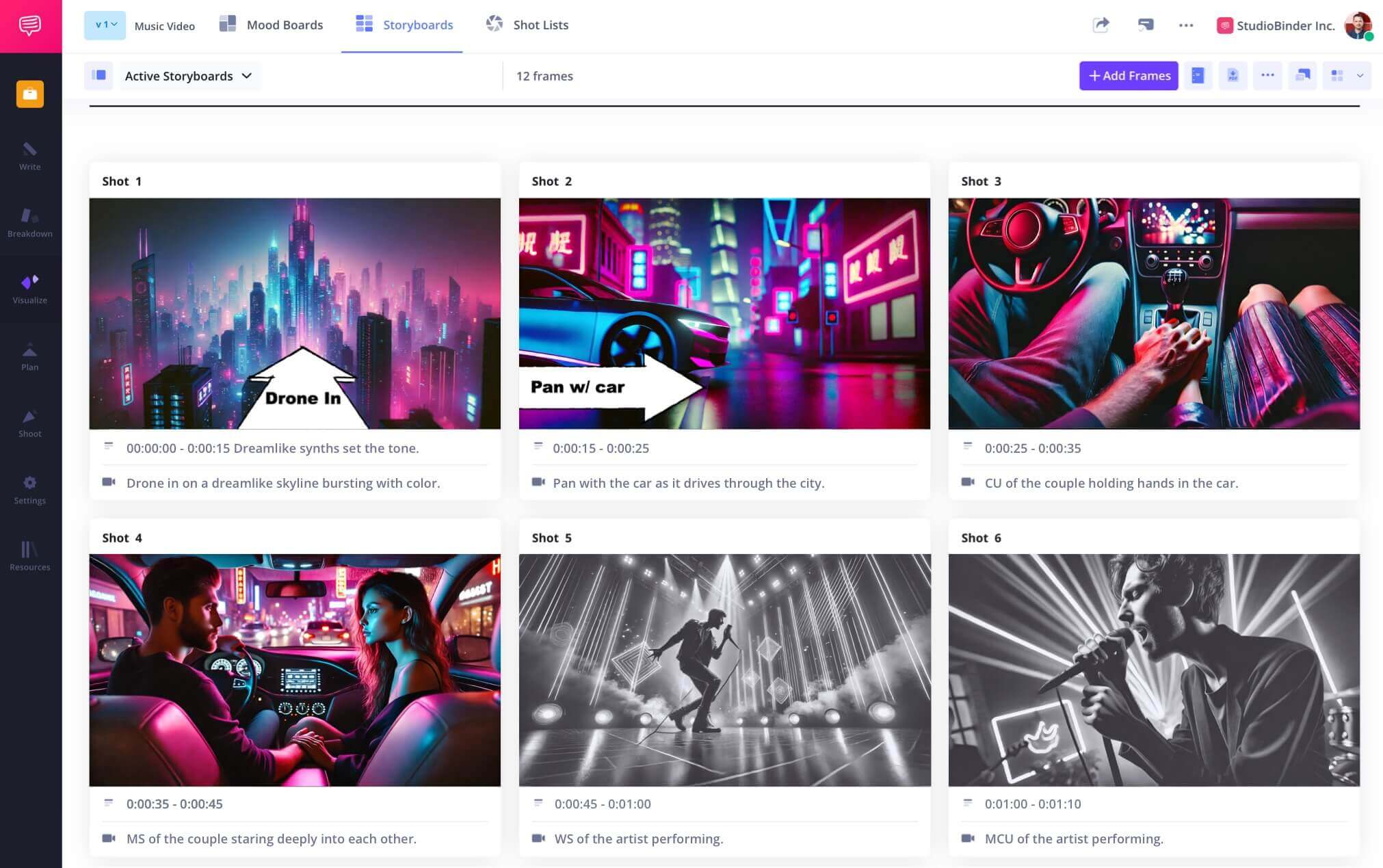
Frequently Asked Questions
Your questions, answered
The best software for storyboarding understands the creative flow and intuitive collaboration in the process. For example, StudioBinder's storyboarding software is integrated within other pre-production processes like screenwriting, script breakdowns, call sheets, etc.
For screenwriters, the best storyboard software has the ability to seamlessly transition between the script and storyboard. In StudioBinder, you can pull up the script alongside your storyboard to work on both simultaneously. Directors will also benefit from this feature since they will often construct their storyboards based on the screenplay.
You can make your storyboard as thorough or as simplified as you want. It's there to help you and your team, so decide whatever works best. Most storyboards don't include dialogue, but there might be some suggestion of what's being said in the descriptions. For example, "Tommy talks about his dad."
A professional storyboard will give the reader a clear picture of the setting, the characters, composition, movement, etc. Therefore, the images themselves should be clear if not highly detailed. Animation storyboards are often well-drawn because the animators themselves are typically involved.
Professional storyboards also include detailed notes and descriptions, including text and arrow annotations to clearly explain what each shot is meant to look like and what any character or camera movement should be.
SA or S/A means "same as." To save time and effort, a storyboard frame might include S/A to indicate that this frame is the "same as" the previous frame in some regard. For example, the background from Frame 1 doesn't need to be redrawn in Frame 2, so adding S/A will suffice.
The paper you use for a storyboard is up to you, but there are a couple of considerations to take into account. First, the paper should be blank instead of lined. Those extra lines will only confuse or interrupt the images. Second, the paper should be the standard weight and thickness as your basic printer paper. From all the drawing, erasing, and handling a storyboard goes through, you'll want something that won't tear easily.
Squares on a storyboard are either called "panels" or "frames," but they mean the same thing.
Customers
Trusted by the Best
Modernizing production workflows at renowned studios worldwide.
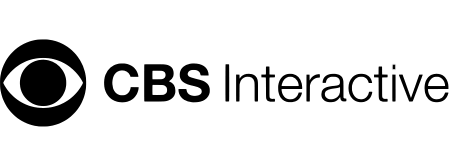



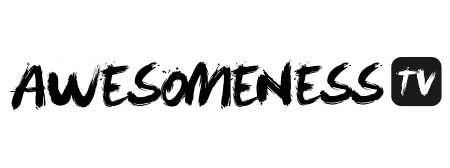





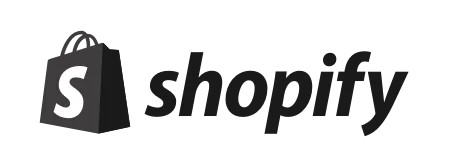

Today’s productions use StudioBinder to streamline their process, and collaborate on better content together.
"I can be a part of the conversation and see when someone finishes a task."
Watch Testimonial ➜
"StudioBinder makes pre-production that much quicker for out team."
Watch Testimonial ➜
"Call sheet confirmations have instantly made our life that much easier."
Watch Testimonial ➜
